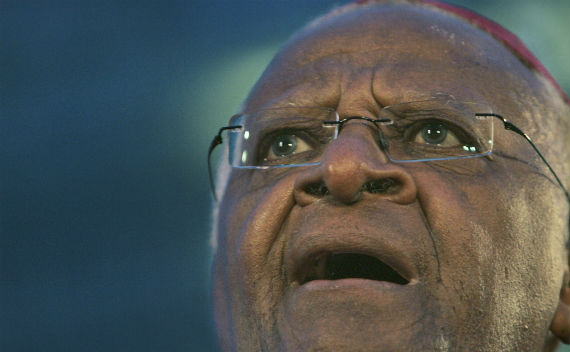Zuma Government Blocks Dalai Lama’s Visit to South Africa
More on:

On October 4, the Dalai Lama canceled a planned visit to South Africa for anti-apartheid icon Archbishop Desmond Tutu’s eightieth birthday. Taking the high road, the Dalai Lama said he wished to spare the Zuma government “any further inconvenience.” Three days before the Dalai Lama’s planned departure for South Africa, the Zuma government had still not responded to his visa application.
Few at home or abroad will find credible the Zuma government’s claim that it was not responding to Chinese pressure. China has become a major South African trading partner and Deputy President Motlanthe visited Beijing last week and signed trade and investment agreements. Further, few will find credible President Zuma’s claim that he was not involved in such a high-profile case.
The government’s handling of the visa has predictably outraged the custodians of the ideals of the anti-apartheid movement, the African National Congress (ANC) and Nelson Mandela. Mamphela Ramphele, a founder of the Black Consciousness Movement with the martyred Steve Biko, and a former vice chancellor (president) of the University of Cape Town, accused the Zuma government of betraying South Africa’s sovereignty: “In foreign policy we must display strength, not weakness.” The vice chancellor of the University of the Witwatersrand said, “The state’s deliberate indecision ridicules the values pertaining to freedom of speech, expression and movement enshrined in our constitution, and the freedoms for which so many South Africans have lived, and indeed died.” He promised to invite the Dalai Lama to visit the university soon, thereby ensuring that the visa issue will not go away. A spokesman for the Desmond Tutu Peace Center said, “This is the darkest day.” In a Cape Town press conference the archbishop himself was scathing: “our government, representing me, says it will not support Tibetans who are being oppressed viciously by the Chinese.” He blamed the president by adding, “Hey Mr. Zuma, you and your government don’t represent me. You represent your own interests.” Dealing the final blow, he concluded “our government is worse than the apartheid government, because at least you were expecting it from the apartheid government.”
The ruling ANC, the Congress of South African Trade Unions, and the South African Communist Party coalition appear to be split over the decision, as they are over much else. Trade union leader Tony Ehremreich said “we should not exchange our morality for dollars or Yuan.” However, ANC youth leader Julius Malema, the coalition’s bad boy who wants to expropriate white farmers and nationalize the mines, has thus far been silent.
Surely the denial of a visa to the Dalai Lama violates the ideals upon which the ANC was founded and needlessly insults Archbishop Tutu and the Dalai Lama, as well their friends and admirers at home and abroad. What is particularly sad is that it is unlikely that a favorable visa decision would have caused the Chinese meaningfully to reduce their trade and investment with South Africa. China is in Africa for the long haul, and South Africa is too important an economic partner. A visit to South Africa by the Dalai Lama could provoke nasty rhetoric from Beijing in the short term, but not much else. As for Jacob Zuma, he is diminished by the way his government has handled the episode, made worse by the Dalai Lama’s courtesy and dignity. As Mamphela Ramphele seems to have implied, he looks weak. On this issue, the Zuma government has lost its way.
More on:
 Online Store
Online Store